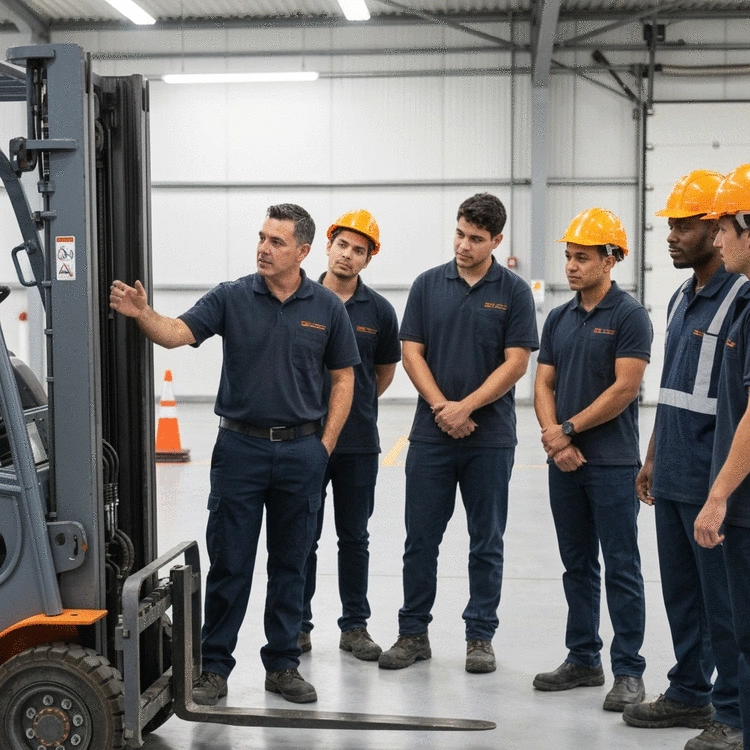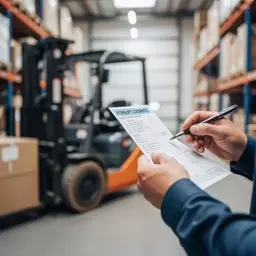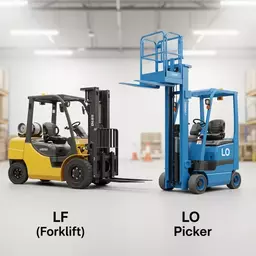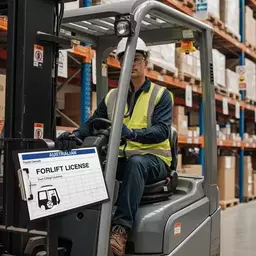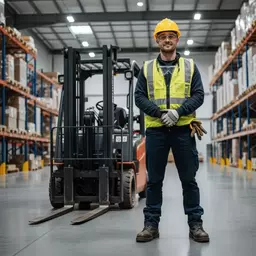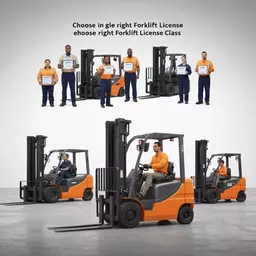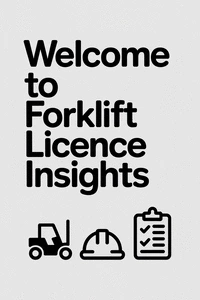Obtaining your forklift licence can be a transformative step for anyone looking to work in a range of industries. With the right certification, you can elevate your career while ensuring safety and compliance in the workplace. Here’s what you will learn about this essential training.
What You Will Learn
- A forklift licence is vital for compliance with Australian safety regulations and to avoid legal issues.
- Holding a forklift licence opens up various career paths in warehousing, logistics, and construction.
- Forklift training comprises both theoretical knowledge and practical skills essential for safe operation.
- Online forklift training offers flexibility, making it easier for those with tight schedules to achieve certification.
- Understanding safety legislation, such as the Work Health and Safety Act 2011, is crucial for safe operations.
- Preparing for the SafeWork assessment is key to ensuring you meet operational standards and safety protocols.
- Networking and career counseling can significantly enhance your job prospects as a certified forklift operator.
Forklift Licence Training Key Benefits & Process
This visual outlines the crucial benefits of obtaining a forklift licence and the typical training process in Australia.
Importance of a Forklift Licence
- ✓ Ensures Safety & Compliance
- ✓ Reduces Accident Risk
- ✓ Boosts Professional Reputation
Career Opportunities
- ✓ Warehouse Operator
- ✓ Logistics Coordinator
- ✓ Construction Site Operator
- ✓ Transport & Distribution
Forklift Licence Training Process
Understanding Accredited Forklift Licence Training in Australia
Are you thinking about diving into the world of forklift operation? Understanding the importance of obtaining a forklift licence is crucial for anyone looking to embark on this journey. Not only does it ensure compliance with safety regulations, but it also opens up a multitude of career opportunities in various industries across Australia. Let’s break down why this is a vital step in your professional development!
Importance of Obtaining a Forklift Licence
Why a Forklift Licence is Essential for Safety and Compliance
First and foremost, a forklift licence is essential for maintaining safety and compliance in the workplace. In Australia, operating a forklift without the proper licence can lead to serious legal consequences and safety issues. It’s not just about following the law; it's about creating a safe environment for yourself and your colleagues. For more detailed information on regulations, visit our guide on 2025 Australian Forklift Licence Changes.
Here are some key reasons why having a forklift licence is non-negotiable:
- Ensures you understand safety protocols and operational procedures.
- Reduces the risk of accidents, protecting both you and your coworkers.
- Demonstrates your commitment to workplace safety, boosting your professional reputation.
By obtaining your licence, you’re not only enhancing your skills but also playing a vital role in fostering a safe workplace culture.

Career Opportunities with a Forklift Licence in Australia
Now, let’s talk about opportunities! With a forklift licence in hand, you open the door to a variety of job prospects. Many sectors require skilled forklift operators, and having this certification makes you a valuable asset. Whether you’re aiming for roles in warehousing, logistics, or construction, your licence is your ticket to growth!
Some popular career paths include:
- Warehouse Operator
- Logistics Coordinator
- Construction Site Operator
- Transport and Distribution Specialist
With the right training and certification, you can find yourself on the fast track to a fulfilling career!
What to Expect from Forklift Licence Training Courses
As you consider your training options, it’s important to know what to expect from forklift licence courses. These courses are designed to equip you with both the practical and theoretical knowledge necessary for safe operation. For a comprehensive overview, check out our Forklift Licence Training Guide Australia.
Overview of Course Components: Practical and Theoretical Training
Forklift training courses typically consist of two main components: practical and theoretical training. Theoretical training covers essential knowledge such as safety regulations, equipment functionality, and risk assessment. Practical training, on the other hand, allows you to apply what you've learned in a hands-on environment.
Expect to engage in:
- Classroom instruction on forklift safety and regulations.
- Hands-on practice operating different types of forklifts.
- Assessments to evaluate your understanding of both theory and practice.
This combination ensures that you are well-prepared to take on the responsibilities of a forklift operator!
Different Types of Forklift Training Courses Available
When it comes to training, variety is the spice of life! There are different types of forklift training courses available to cater to various needs and learning preferences. From short courses to comprehensive programs, you can find the one that best suits your schedule and goals. Here’s a quick overview:
- Full-day courses for quick certification.
- Multi-day courses for in-depth learning.
- Specialized training for specific forklift types or industry needs.
Choosing the right course can make a significant difference in your learning experience.
Online Forklift Training: Flexibility and Accessibility
In today’s fast-paced world, online training has become a popular option. Online forklift training offers flexibility and accessibility for those who may have scheduling conflicts or prefer to learn at their own pace. You can engage with course materials from the comfort of your home while still receiving quality instruction.
Some benefits of online training include:
- Access to interactive learning modules and resources.
- Ability to learn at your own pace without the pressure of a traditional classroom.
- Cost-effective options that fit within your budget.
Whether you choose in-person or online, the right training will set you on the path to success!
I couldn't find a specific YouTube video that directly addresses "Where to Find Accredited Forklift Licence Training Providers in Australia." However, here is a related video that might be useful:
Pro Tip
Did you know? Engaging actively with your training can significantly enhance your learning experience. Don’t hesitate to ask questions during your courses or reach out to instructors for clarification on complex topics. Building connections with fellow students can also provide support and networking opportunities that may benefit your career in the long run!
Enhancing Your Forklift Training Experience
As you embark on your journey to obtain your forklift licence, it’s crucial to prioritize safety and compliance training. This not only helps you become a competent operator but also ensures that you are well-versed in the legal requirements surrounding forklift operation in Australia. Let’s explore the different facets of enhancing your training experience!
Importance of Forklift Safety and Compliance Training
Understanding safety legislation and its application is vital. Regulations set forth by authorities like SafeWork Australia are in place to protect both operators and those in the vicinity. Compliance training will equip you with the knowledge to minimize risks and maintain a safe working environment.

Understanding Safety Legislation and Its Application
In the realm of forklift operation, various safety laws govern how equipment is used and maintained. Familiarity with these regulations can make a significant difference in your day-to-day operations. Here are the key points you should understand:
- Work Health and Safety Act 2011: Sets out the framework for workplace safety.
- Safe Work Method Statements (SWMS): Details the specific methods to carry out safe operations.
- Operator obligations: Responsibilities to ensure personal and workplace safety.
Knowing these elements not only prepares you for assessments but also reinforces your commitment to safe operation practices.
Preparing for the SafeWork Assessment
Your journey wouldn’t be complete without preparing for the SafeWork assessment! This examination is crucial, as it ensures you understand the operational standards and safety protocols. To ace the assessment, focus on:
- Reviewing training materials thoroughly.
- Practicing hands-on skills with a forklift.
- Engaging in discussions with instructors and peers to clarify doubts.
Approach this preparation with confidence, as it’s a stepping stone towards achieving your forklift licence!
National Forklift Safety Council Guidelines and Best Practices
The National Forklift Safety Council provides essential guidelines to ensure safe forklift operation. Familiarizing yourself with these best practices can enhance your training experience significantly. Here are some guidelines to consider:
- Conducting regular safety checks and maintenance on equipment.
- Ensuring proper training for all operators.
- Utilizing personal protective equipment (PPE) at all times.
By embracing these practices, you’ll not only safeguard yourself but contribute to a culture of safety within your workplace.
Post-Licence Career Guidance for Forklift Operators
Once you’ve secured your forklift licence, the next step is navigating your career path. There are numerous opportunities available across various sectors, and I’m here to guide you on what to expect!
Industry Demand Insights: Where Are the Jobs?
The demand for skilled forklift operators is growing, especially in industries such as logistics, construction, and manufacturing. Key locations where job prospects are promising include:
- Warehouse operations in major cities like Sydney and Melbourne.
- Construction sites across Australia.
- Manufacturing plants that require material handling.
By staying informed about these industry trends, you can position yourself effectively in the job market.
Advice for International Students and Visa Holders
If you’re an international student or a visa holder looking to enter the forklift operating field, consider these practical tips:
- Research local licensing requirements in your state.
- Connect with local training providers who offer tailored programs.
- Network with industry professionals to gain insights into job opportunities.
Being proactive can significantly enhance your chances of finding a rewarding position in Australia’s competitive market.
Career Transition Assistance for Forklift Operators
For those looking to transition careers or move up the ladder within the forklift industry, various resources can assist you. Consider leveraging:
- Career counseling services offered by training providers.
- Networking events for forklift operators and industry professionals.
- Additional certifications to enhance your skill set and marketability.
With the right support and resources, you can unlock new career opportunities and reach your professional goals! For further details on obtaining your licence, refer to our article on Getting Your Forklift Licence in Australia.
Frequently Asked Questions About Forklift Licences
- Q: Why is a forklift licence essential in Australia?
- A: A forklift licence is essential for maintaining safety and compliance in the workplace, reducing the risk of accidents, and avoiding legal consequences. It ensures operators understand safety protocols and operational procedures.
- Q: What career opportunities can a forklift licence open up?
- A: A forklift licence opens up various career opportunities in sectors such as warehousing, logistics, construction, and transport and distribution. Roles include Warehouse Operator, Logistics Coordinator, and Construction Site Operator.
- Q: What does forklift licence training involve?
- A: Forklift licence training typically involves both theoretical and practical components. Theoretical training covers safety regulations, equipment functionality, and risk assessment, while practical training provides hands-on experience operating forklifts.
- Q: Is online forklift training available?
- A: Yes, online forklift training offers flexibility and accessibility, allowing individuals to learn at their own pace and from the comfort of their home. It includes interactive modules and resources.
- Q: What safety legislation should forklift operators be aware of?
- A: Forklift operators should be aware of the Work Health and Safety Act 2011, Safe Work Method Statements (SWMS), and their general operator obligations to ensure personal and workplace safety.
- Q: How can I prepare for the SafeWork assessment?
- A: To prepare for the SafeWork assessment, you should thoroughly review training materials, practice hands-on skills with a forklift, and engage in discussions with instructors to clarify any doubts.
- Q: Where is the demand for skilled forklift operators highest?
- A: The demand for skilled forklift operators is growing in industries like logistics, construction, and manufacturing. Job prospects are promising in warehouse operations in major cities like Sydney and Melbourne, as well as construction sites and manufacturing plants across Australia.
Recap of Key Points
Here is a quick recap of the important points discussed in the article:
- Obtaining a forklift licence is essential for safety and compliance in the workplace.
- A forklift licence opens up various career opportunities in sectors like warehousing, logistics, and construction.
- Forklift training courses include both theoretical knowledge and practical skills essential for safe operation.
- Online forklift training offers flexibility and can be a cost-effective option for many learners.
- Understanding safety legislation and preparing adequately for assessments is crucial for success.
- Staying informed about industry demand can help you position yourself effectively in the job market.
